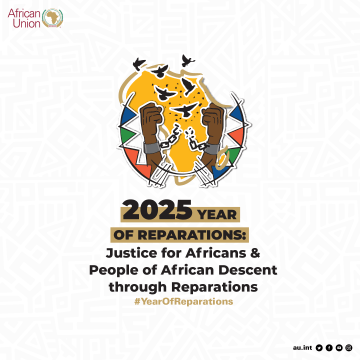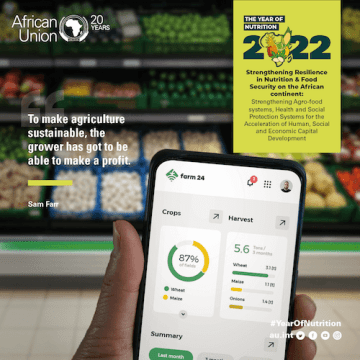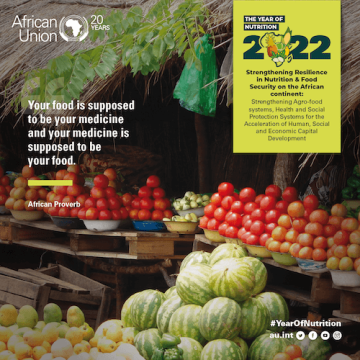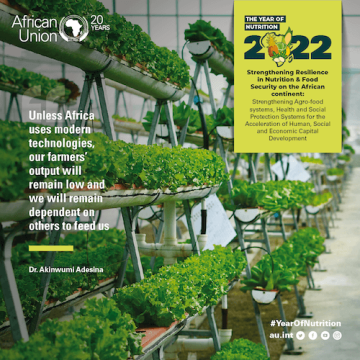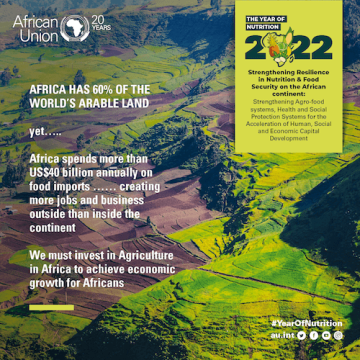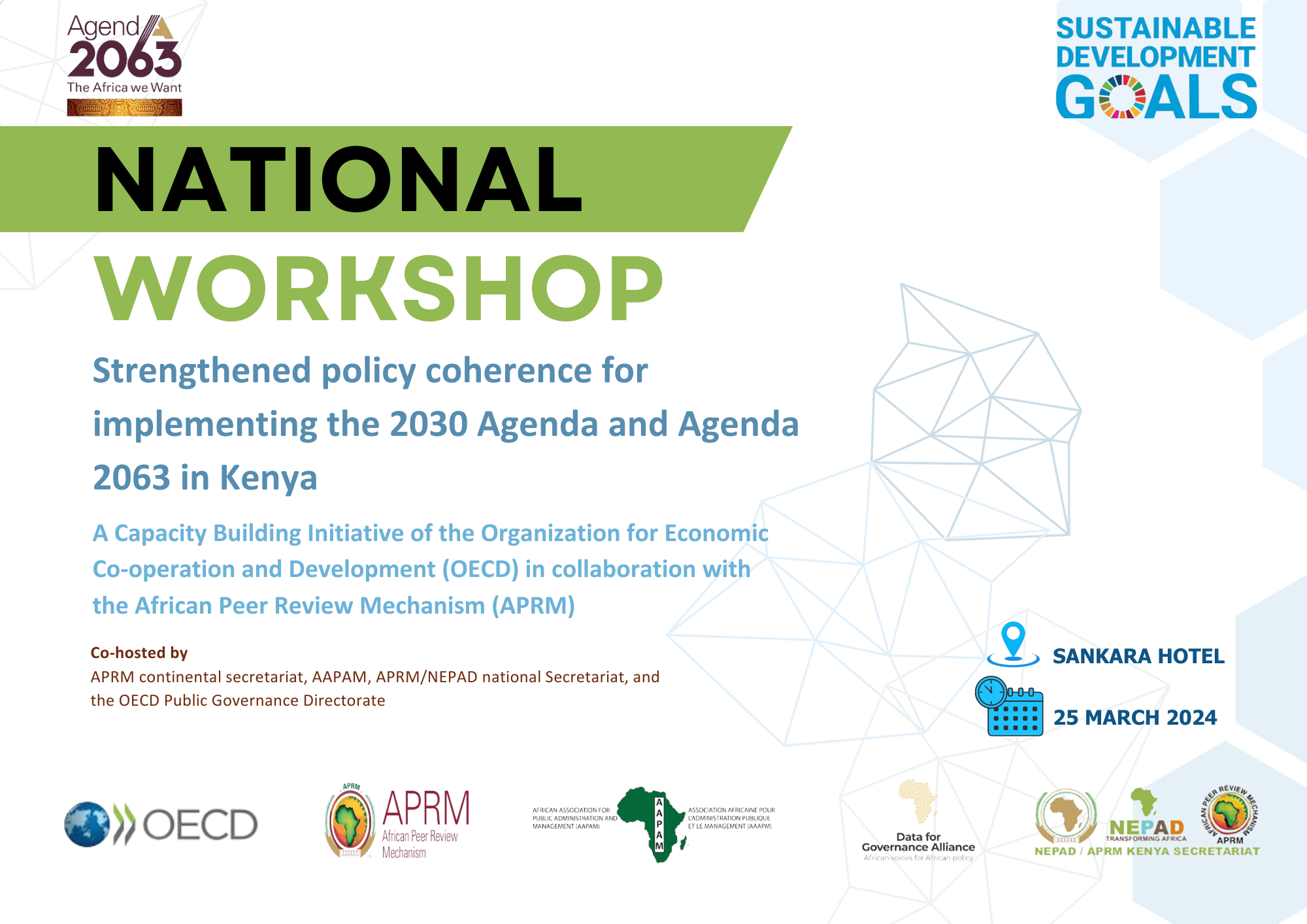
Concept note
National workshop on Strengthened policy coherence for implementing the 2030 Agenda and Agenda 2063 in Africa
A Capacity Building Initiative of the Organisation for Economic Co-operation and Development (OECD) in collaboration with the African Peer Review Mechanism (APRM)
Co-hosted by APRM continental secretariat, AAPAM, APRM/NEPAD national Secretariat, and the OECD Public Governance Directorate
_________
Monday 25 March 2024
Venue: Sankara hotel – Nairobi
OBJECTIVES
The purpose of this workshop is to initiate a multi-stakeholder dialogue on how to develop a systemic framework for sustainable development in Kenya through enhanced policy coherence. The workshop aims to:
- Identify priorities for strengthening government capacities to address synergies, manage policy trade-offs and avoid negative spillovers in the implementation of the Sustainable Development Goals (SDGs) and Agenda 2063 “the Africa we want.”
- Improve understanding among policy makers and key stakeholders on how institutional mechanisms and government tools can support integrated policy making, enhance policy coherence for sustainable development, and accelerate progress on the 2030 Agenda and Agenda 2063
BACKGROUND
The UN 2030 Agenda and the AU Agenda 2063 are vital strategic frameworks for pursuing and achieving sustainable development in African countries. Although they have been approved in separate multilateral contexts and offer specific sets of goals, targets, and indicators, both contribute substantially to the overarching paradigm of sustainable development in all relevant social, economic, environmental and governance dimensions.[1]
The APRM and the OECD share the same methodological approaches to policy coherence for sustainable development (PCSD) that includes in-depth country reviews, knowledge sharing and peer learning. This workshop is part of a joint initiative that builds on both organisations’ peer-, expert- and practitioner networks and comparative databases in the area of public governance.
FORMAT OF THE WORKSHOP (to be discussed with the host country)
Following the Opening Session in plenary and presentations by the OECD Secretariat, the APRM and Kenya to set the broader context, participants will then form three breakout groups that will each convene to discuss the results of the host country’s online PCSD self-assessment (a link and instructions will be shared with all participants one week in advance of the workshop) for one of the PCSD Recommendations three pillars:
- Group 1: Strategic vision, political commitment, and leadership
- Group 2: Mechanisms for policy interaction across sectors and government levels
- Group 3: Monitoring, reporting and evaluation systems.
Each group will be facilitated by an OECD/APRM expert and participants will be invited to consider how the mechanisms under each pillar could be relevant in the context of developing the country´s implementation of the 2030 and 2063 Agendas.
In particular they will consider if and how the governments’ capacities and mechanisms are effective in formulating policies in an integrated manner to address cross-cutting challenges such as, for example, climate change; in taking in consideration the timing and the actors needed in a coordination process in identifying and addressing synergies and trade-offs across key sectors; in involving key stakeholders; in considering unintended consequences of policies (ex-ante, during, and ex-post); and in tracking progress.
Following a short break, the groups will reconvene in plenary where three rapporteurs will report back on the findings, supported by the graphic charts produced by the self-assessment. A final session will draw conclusions and outline possible next steps.
EXPECTED OUTCOMES
- Understanding and awareness of Policy coherence for sustainable development amongst national experts from Kenya in enhanced.
- Assessment of PCSD at national level is conducted with the support of APRM national and continental secretariat.
- A consolidated report of the self-assessment exercise will be produced and disseminated to key stakeholders. this report will be the basis for developing an online guidance for development co-operation providers to support efforts to strengthen policy coherence for sustainable development on the African continent.
- On the margins of the HLPF 2024, Republic of Kenya will be invited to take part in the APRM-OECD high-level joint event at the United Nations to share findings of the workshop and way forward to enhance PCSD especially with the adoption of Second-Ten year implementation plan of Agenda 2063: the Africa we want.
AGENDA
Monday 25 March 2024
9:30 -10:00 Registration
10:00-10:30 OPENING SESSION: Welcome remarks (5-8 minutes/ each speaker)
Moderation: Ms. Sara Hamouda, APRM Continental Secretariat, Monitoring and Evaluation Directorate
- H.E Prof. Njuguna Ndungu, Cabinet Secretary of National Treasury and Economic Planning and APRM Focal Point - Republic of Kenya (tbc)
- Moses Kuria, Cabinet Secretary of Public Service (tbc)
- George Kojo Scott, Secretary General- African Association for Public Administration and Management
- Ernesto Soria Morales, Head of Unit, Policy Coherence for Sustainable Development, OECD Public Governance Directorate
10:30-12:00 SESSION 1: Enhancing policy coherence for sustainable development
Moderation: Mr. David Yalla, APRM/NEPAD National Secretariat, Nairobi
This first session will serve to set the context and to familiarise all participants with the OECD Council Recommendation on Policy Coherence for Sustainable Development (PCSD Recommendation). It will highlight how each of the Recommendation’s eight principles can contribute to enhanced policy coherence, as called for by SDG target 17.14.
- How to strengthen policy coherence for sustainable development (PCSD)?, presentation by Carina Lindberg, Policy Advisor, OECD Public Governance Directorate (10 minutes)
- Policy coherence for implementing the 2030 Agenda and STYIP of Agenda 2063, presentation by Sara Hamouda, SDGs, and Agenda 2063 Coordinator, APRM Continental Secretariat (10 minutes)
- Reflections on Policy coherence in Kenya: best practices and challenges
- State Department for Economic Planning, Kenya
- Loureen Imelda Achieng, CEO, Parliamentary Caucus on SDGs and Business
- Patricia Nying’uro, Focal point and co-chair of Kenya Intergovernmental Panel on Climate Change (IPCC)
- Kenya’s experience with APRM Reviews and programs, Peter Kimema, Director APRM/AUDA-NEPAD National Secretariat (10 minutes)
Open discussion and engagement with the experts
Background documents:
- Agenda 2063 : the Africa we want
- OECD Recommendation of the Council on Policy Coherence for Sustainable Development (2019)
- OECD Guidance Note for implementing the PCSD Recommendation (2021)
- Kenya second voluntary national review (VNR)
12:00-13.00 SESSION 2: Institutional mechanisms in Kenya – PCSD Self-assessment
Moderation: Ms. Julie Muia, Program officer, African Association for Public Administration and Management (AAPAM)
- Introduction to the PCSD Self-assessment tool by the OECD, Carina Lindberg, Policy Advisor, OECD Public Governance Directorate
In the first part of Session 2, participants will be given time to complete the PCSD Self-assessment on their computers or smart phones. Go to the self-assessment: https://www.oecd-surveys.org/75. The results will form the basis for the afternoon’s group discussions.
13.00-14.00 Lunch break
14.00-15.30 Institutional mechanisms in Kenya – Group exercises (cont. Session 2)
The second part of the session will facilitate three break-out discussions on the results of Kenya’s online PCSD Self-assessment. Each group will focus on one of the three PCSD pillars:
- Group 1 on Strategic vision, moderated by Bernadette Yiga
- Group 2 on Policy interactions, moderated by Wanja Douglas, East Africa Coordinator, Data for Governance Alliance (D4GA).
- Group 3 on Impacts, Robert Papa (Busai County& Ms. Ivory Kairo, Development Reimagined
Questions to consider will include:
- What are the weaknesses/strengths in existing national institutional mechanisms dealing with sustainable development and policy coherence across sectors and levels of government?
- How can existing mechanisms be used more proactively to maximise synergies and anticipate trade-offs between sectoral policies and between short-term and long-term priorities?
- How can negative impacts domestically and abroad be anticipated, or addressed?
- What civil service skills for SDG implementation need strengthening in order to leverage the full potential of the mechanisms and processes in place?
- How is coherence between the 2030 and 2063 Agendas being addressed at policy level?
Background material:
Coffee break
15.30-16.30 Report-back to plenary and open discussion (cont. Session 2)
In this session, a rapporteur from each of the three break-out groups will highlight the main discussion points, supported by the OECD facilitator and a graphic chart over the self-assessment results. There will be ample space for discussion and questions from the other groups.
- Group 1 report on Strategic vision
- Group 2 report on Policy interactions
- Group 3 report on Impacts
- Open discussion and Q&A
16:30 - 17.00 CLOSING SESSION: Wrap-up and Vote of thanks
- Carina Lindberg and Ms. Sara Hamouda: main take-aways from the workshop and outline possible next steps.
- Voice of youth and CSOs; OGP and others
- Representatives from APRM/NEPAD National Secretariat and Government of Kenya
[1] Towards an integrated implementation of the 2030 Agenda and Agenda 2063 – ensuring synergies by learning from practice, Deutsche Gesellschaft für Internationale Zusammenarbeit (GIZ) GmbH, 2022.










